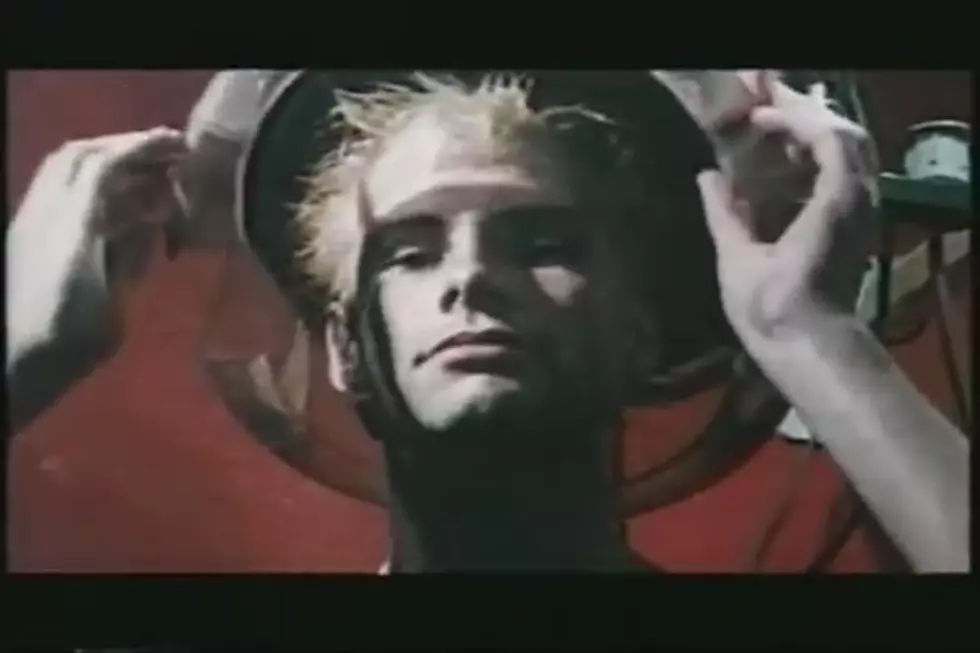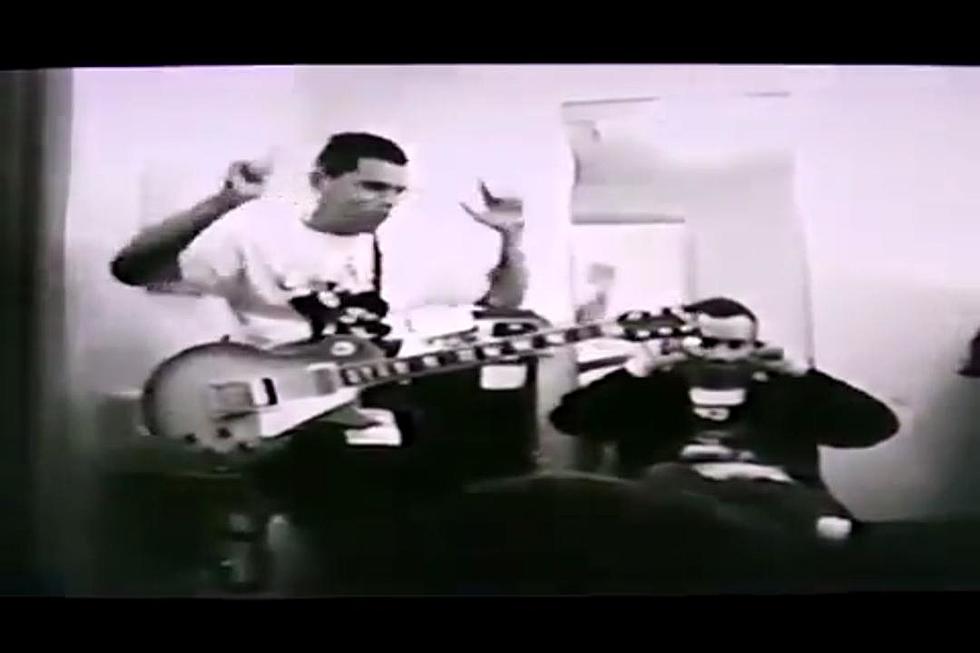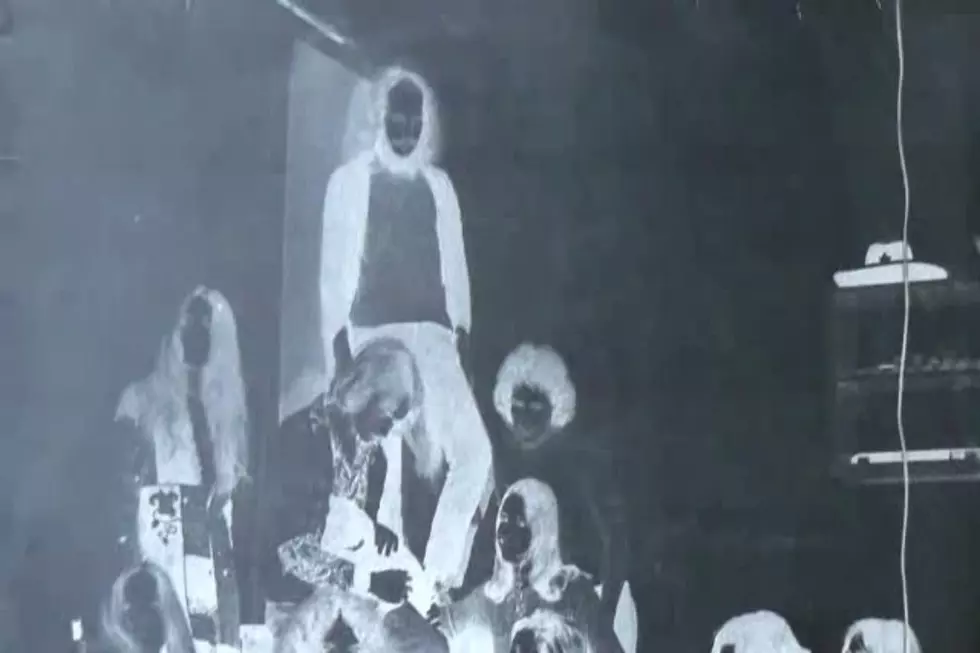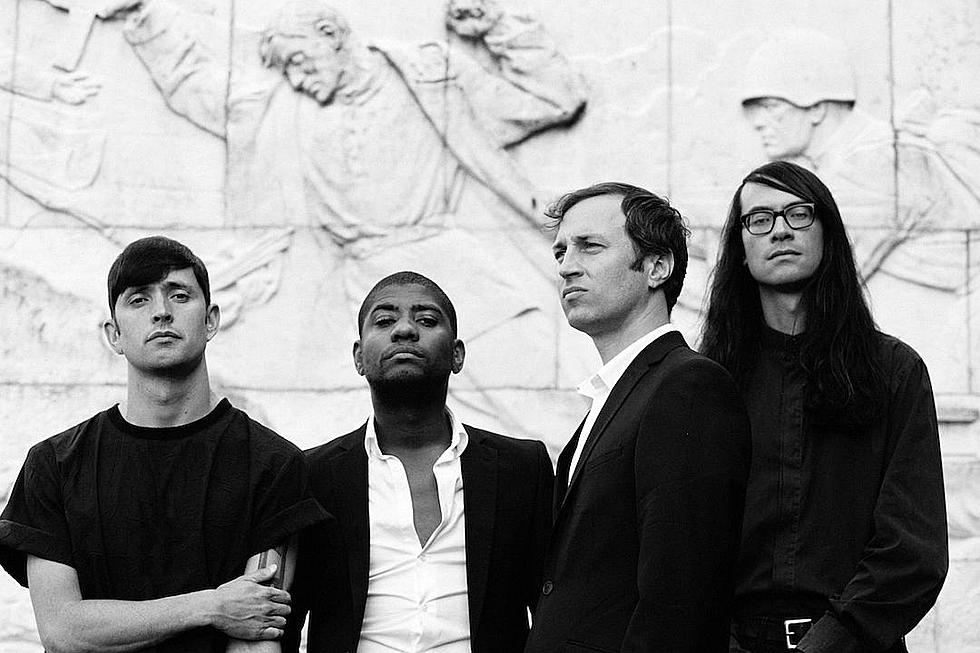
UFO, Budgie, Uriah Heep and the Beginning of Metal
Sit back, take a hit and contemplate the amount of guitar-fueled heaviness the United Kingdom has bestowed upon us in the past 50 years. To even attempt to take it all in and lay it out in some form of sequential order is enough to crush your brain into marinara. From the seeds sown by the likes of Cream and Deep Purple to the precise ferocity of Iron Maiden and the scads of other bands from the early '80s New Wave of British Heavy Metal canon — as well as the doomy chug of Cathedral and Electric Wizard and beyond — the amount of gratitude we owe is insurmountable.
But all of this didn’t just fall from the sky like some tin-covered turd when Ozzy and crew released their debut LP in 1970. Both before and during Sabbath’s reign as the heaviest in the land, there were a fistful of bands that were important in the cultivation of Britain's hefty sounds, but never got the recognition they deserved. In this first installment of Crash Course, we’ll rake through the rubble to expose the forsaken pioneers of that distinctly English form of ominous sonic chug that would be the soundtrack for a denim-clad and acne-scarred generation.
THE GUN
When you rifle through the history books on heavy music from the British Isles, the High Wycombe trio known as the Gun barely ever gets a mention, and I’ve always been confused as fuck about that whole predicament. In 1968, the band came out with the single “Race With the Devil," and within three minutes laid out the blueprint both musically and thematically for all riff-fueled action to come from their country for years. With consistently blistering guitar work courtesy of Adrian Gurvitz and the dark imagery of an armed demon running rampant through the back alleys of London, the track's influence rang throughout British heavy metal for years; most especially in Judas Priest and Girlschool, who both ended up covering the tune. After the Gun disbanded at the cusp of the '60s, Adrian and his brother Paul formed the equally burly power trio Three Man Army, which managed to put out three excellent albums before joining forces with former Cream drummer Ginger Baker in the Baker Gurvitz Army in 1974.
ELIAS HULK
In the wake of the British blues boom of the '60s, many huge and hairy bands attempted to take the rawest elements of that already guttural music and create something entirely their own. No band brought this concept to its knuckle-dragging zenith better than the south coast’s Elias Hulk. Combining the macabre of Hammer Horror with a molar-rattling low end, the band released a sole LP, Unchained, for the Youngblood label in 1970. Housed in a sleeve that would make members of Witchfinder General wince at its crudeness and marvel at its misogyny, Unchained is perhaps the most rudimentary of the slabs to come out of England in this time frame, making it something of a foggy precursor to the heads-down delivery of the likes of Venom, Warfare and other raw-and-ready types from the '80s British metal scene.
EDGAR BROUGHTON BAND
If I told you the Edgar Broughton Band was a musical trio of brothers being driven from gig to gig around the English countryside by their mother, it might not conjure up an image of the hardest-looking bunch of dudes. But they were in fact one of the loudest, dirtiest and downright ugliest bands in the land in their time. Yet another trio formed during the British blues boom, Edgar and Steve Broughton started to transition from mimicking the greats of the Delta into a darker form of bombast with their monumental 1969 debut LP, Wasa Wasa. The band attracted the more unsavory elements of the hippie world to their gigs: anarchists, bikers, militant political activists and various other unwanted vermin. Sure, they might not have had a finger in the swords-and-sorcery bullshit that British metal would be known for later on, but their two-finger salute to the status quo and louder-than-you spirit resonated like a stout ale-charged belch throughout the ages of the genre.
BUDGIE
The non-saga of Wales' Budgie and their place in the grand scheme of heavy music in the U.K. has always stuck in the collective craw of heavy music fans in the know. Although they swam in the same murky major label waters as Sabbath, Zeppelin and many others, they never seemed to gain the same amount of respect. While taking in that mighty initial quadrumvirate of their 1971 self-titled debut, Squawk (1972) Never Turn Your Back on a Friend (1973) and In for the Kill! (1974) in the basement the other night, it became painfully obvious as to why this happenstance occurred: Budgie were too heavy, too raw, too uncomplicated, too unsexy and — most importantly — too unconcerned about adhering to what anyone’s idea of what a rock band should have been in that day and age of pomp and posturing. With their boisterous sound and denim-clad demeanor, the band held more influence on what would happen in the development of metal in their country in the next decade than any frilly shirt-sporting rock god ever could.
URIAH HEEP
If Budgie inspired the no-nonsense bombast of the New Wave of British Heavy Metal in the '80s, then Uriah Heep informed it with their overall dynamic sonic sweep. Although the band was approaching major cheese zones by the time Raven and Saxon were breaking ground in the country, there’s no doubt that plenty of shit was cribbed from the band’s first six (or so) albums. Not only that, but the band was behind the formation of Bronze Records, the independent label that would go on to put out such seminal metal albums as Motörhead’s Ace of Spades and Girlschool’s Hit and Run. How much more influential can you get? Not much, methinks.
DARK
In their day, Dark were not exactly breaking attendance records at the Hammersmith Odeon; if they were lucky, they might attract 20 people down at the local working men’s club in their native Northampton. But when Round the Edges, their one and only self-released full-length from 1972, was unearthed from a thrift store by veteran record dealer Paul Major in the early '90s, both the band and that record obtained a fabled aura among diggers of heavy treasures. Reissued many times since, the record is not only a testament to the impact that the bigger and heavier bands of the time were having in the nooks and crannies of their native land, but the obscured and untapped talent that littered Britain at the time. To think that bands as heavy as this could have existed in every cobbler’s cottage is enough to give cold sweats to a dork like me. (P.S. It has.)
UFO
Despite being best known for propelling Michael Schenker into guitar god status, UFO had already fully entrenched themselves in the soil of what was to be British heavy metal prior to all that. Their first two pre-Schenker LPs are some molar-moving affairs that truly capture them as the heads-down, drug-fueled, no-frills hard rock band they were prior to the success they would enjoy later in the '70s. Even after losing the golden goose of Schenker, they stood toe-to-toe with the units they inspired on tour, all the while putting out great records well into the '80s such as No Place to Run and The Wild, the Willing and the Innocent.
PINK FAIRIES
Much like the Edgar Broughton Band, the Pink Fairies brought a tumid energy to the early '70s, but their vibe had little to do with the whole Dungeons & Dragons element that would later dominate the British metal scene. Also, like the Broughtons, they aligned themselves with rabble-rousing anarchists and the English wing of the White Panthers while playing free makeshift shows “for the people” in front of some of the largest rock festivals of the time. Out of the three wonderfully guitar-excessive albums they released in their prime, it’s the finale in the trio, Kings of Oblivion (1973), that is the crown in this constantly stoned unit’s crown. Undoubtedly one of the finest full-lengths in British rock history, it is full of a fury that is both graceful and wasted in its delivery. If you listen and don’t agree, I would seriously consider changing your dealer.
More From CLRVYNT









